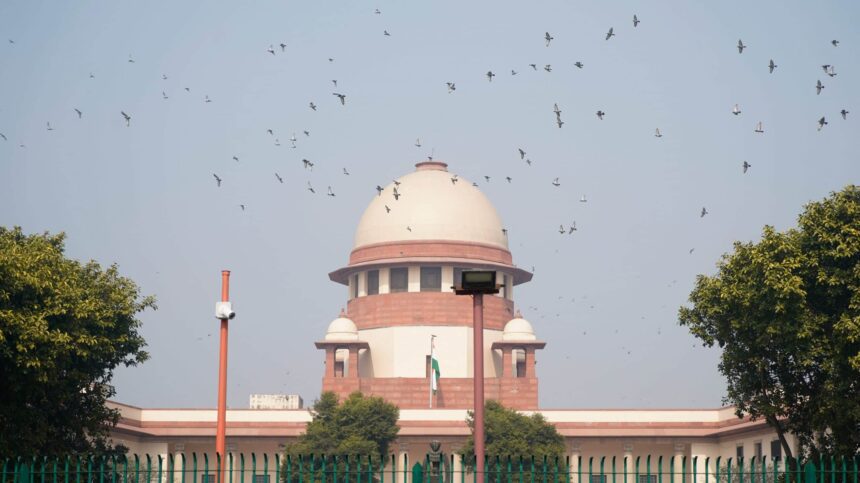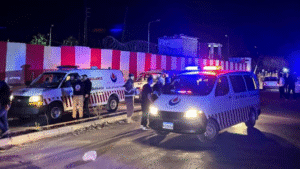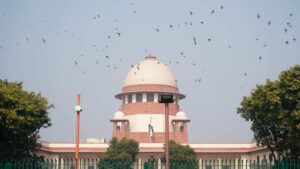The Kerala Waqf Samrakshana Vedhi has filed a Special Leave Petition with the Supreme Court, challenging the Kerala High Court’s assertion that the Munambam property is not classified as Waqf land, according to Live Law.
The organization contends that the High Court’s October 10 ruling—a decision made by a division bench that upheld the State Government’s appointment of a one-member Commission of Inquiry into the status and extent of the 404.76-acre Munambam property—exceeded the legal questions at hand. They argue that the determination of the waqif’s intention, the interpretation of the 1950 endowment deed, and the classification of the land as either Waqf or a simple gift necessitate a trial, evidential support, and statutory adjudication exclusive to the Waqf Tribunal’s jurisdiction.
The Munambam issue has been contentious, with local residents claiming that waqf law impinges on their land rights. In 1950, Siddhique Sait donated the property to Farook College, an institution managed by Muslims, which subsequently sold the land in the 1960s. Current residents assert that their predecessors purchased the land from Farook College. However, in 2019, the Waqf Board declared the area to be Waqf property, resulting in the cessation of land tax payments and raising concerns about potential eviction.
Protests by residents have gained considerable attention, particularly amid the national discourse surrounding the Waqf Amendment Act of 2025. In response to public outcry, the State Government formed a judicial Commission led by former High Court Justice C.N. Ramachandran Nair to investigate the matter.
Initially, a single judge of the Kerala High Court had quashed the Commission of Inquiry, indicating that jurisdiction over the case lay solely with the Waqf Tribunal. However, upon appeal by the State, a division bench overturned that decision, asserting that the Munambam property is not Waqf land and that the 2019 registration by the Waqf Board was ultra vires the Waqf Act of 1995.
The Waqf Samrakshana Vedhi claims that the legality of the Waqf Board’s 2019 registration was not addressed in the High Court’s writ appeals, nor did the State request such a declaration. They assert that the only issue before the Court was the State’s authority to appoint a Commission of Inquiry regarding a matter already under adjudication by the Waqf Tribunal. They further argue that the High Court’s factual conclusions regarding the 1950 endowment deed prejudice ongoing legal proceedings in Kozhikode, which challenge the Waqf Board’s declaration.
The petitioner highlights that previous determinations about the property were made in O.S. No. 53 of 1967, where the Sub Court of Paravur ruled that the 1950 document executed in favor of Farook College was indeed a waqf deed. This ruling was reaffirmed by the Kerala High Court in 1973 and remains unchallenged by Farook College, making it binding and impervious to re-evaluation through an executive inquiry.
The Special Leave Petition further argues that the High Court’s allowance for the Commission of Inquiry effectively establishes a parallel adjudication process alongside the Waqf Tribunal, which the Waqf Act intentionally designates as the exclusive authority for such matters. It contends that the Commissions of Inquiry Act of 1952 does not empower the government to form a Commission for inquiries into issues that are already sub-judice, asserting that the High Court’s order contradicts Sections 83 and 85 of the Waqf Act, which prohibits external interference in matters within the Tribunal’s jurisdiction.
Meanwhile, the Munambam protests have now surpassed 400 days, with irate residents marking the day by burning copies of their property documents and demonstrating against the ongoing uncertainty regarding their land rights.
Tags: SC petition contests Kerala HC order on Munambam land tied to Waqf Extract 5 SEO-friendly keywords as tags. Output only keywords, comma separated.
Hashtags: #petition #contests #Kerala #order #Munambam #land #tied #Waqf










